Description
ABSTRACT
Tourism as a Viable Source of National Revenue: An Examination of its Offshoots of Peace and Economic Empowerment
Dr. Nwudego Chinwuba*
Tourism is a word usually connected with travel and leisure. More recently, it has become connected with commerce, medicine, sports, religion etc. To the extent that these connections are made, the tourist is often regarded as a busybody once outside his homeland. This is what often happens when a word is used or an action is seen from its practical utility alone as opposed to its historical-sociological connotations. It is this latter linkage which often produces the concept or normative basis of an action or the word which captures it. In this paper, the author proposes a normative basis for tourism and concludes that to the extent that the current usages of tourism exclude a fundamental objective of tourism which is touring for its very sake, a definition is lacking which may be the reason tourism may sometimes represent an instrument of vendetta rather than co-operation. Based on this prognosis, the author takes the position that the tourist should be viewed more than a fun seeker but ‘an ambassador’ for the earth to whom a sacred duty is owed. When this approach is adopted tourism as an instrument of peace and human integration becomes evident. Nigeria is a great country with benevolent natural forces and resources, a focal point for tourism. The government, at national and State levels should do more to explore this avenue of empowering citizens, integrating culture and promoting nationalism. The paper draws on the provisions of the Nigerian Tourism Development Act and notes that the decisions on tourism in AG Lagos State v AG Federation; and AG Federation v AG Lagos State may have missed these vital perspectives.
INTRODUCTION
Tourism has been a subject of litigation in Nigeria. Not surprisingly, it is not with respect to its finer aspects, the establishment of which should draw out its attributes of revenue yielding, but with respect to who controls resources. The parties to the suits are also not surprising, being the Federal Government and Lagos State. Paragraph 60 (b), (c) and (d) of Part 1 of the Second Schedule to the Constitution of the Federal Republic of Nigeria provide for laws in relation to tourism.1
Peace is a word with an elusive definition, not because its meaning is not clear but because of its place in the experience of humankind. It is an appealing term to so many people but it appears that in fact, many consider peace unattainable and that humankind must be in a continuing state of aggression. However, this need not be the case. A sustainable peaceful, not necessarily a technological advanced world, is the ultimate achievement of humankind.
One Dictionary definition of peace is: “1) freedom from or absence of war; 2) a treaty or agreement ending a war; 3) freedom from or absence of noise, disturbance or disorder; quietness or calm”.2 Peace is also defined in a law dictionary as: “A state of public tranquillity; freedom from civil disturbance or hostility. Then there is ‘armed peace’ defined as a situation in which two or more nations, while at peace, are actually armed for possible or probable hostilities”.3
* Senior Lecturer, Faculty of Law, University of Lagos, Akoka-Lagos. The original text of this article is a paper presented at the GM IBRU & Co. Annual Law Seminar Series: The Economy, Hospitality, Tourism and The Law, held at Sheraton Hotels, Lagos on 13 November 2013
- Cap C23 Laws of the Federation 2004
- Chambers, 21stCentury Dictionary Robinson, M. & Davidson, G. Eds. (Cambridge University Press: 1997) 1015
- Black’s, Law Dictionary Ed., by Garner, B. A. (9th ed. West Group, St. Paul, Minn. 55123, USA: 2009) 1244

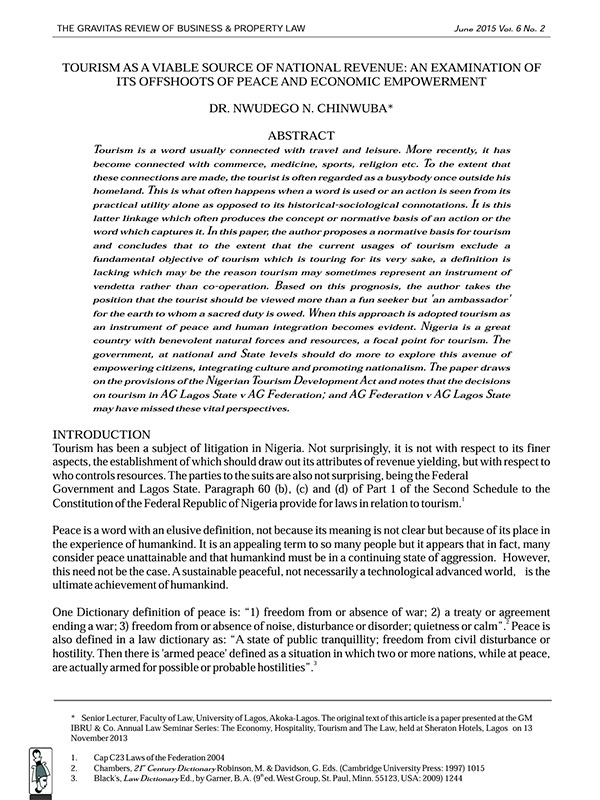
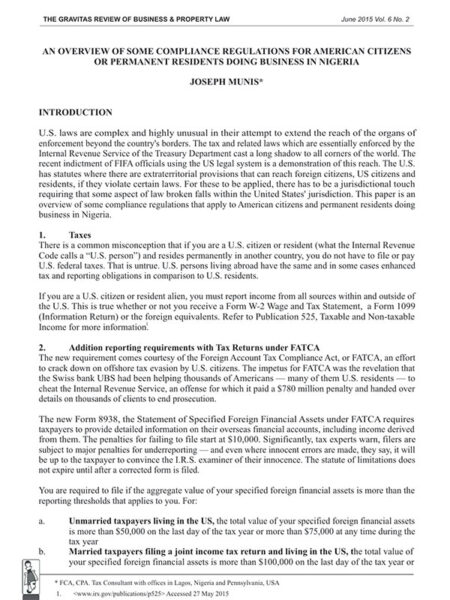
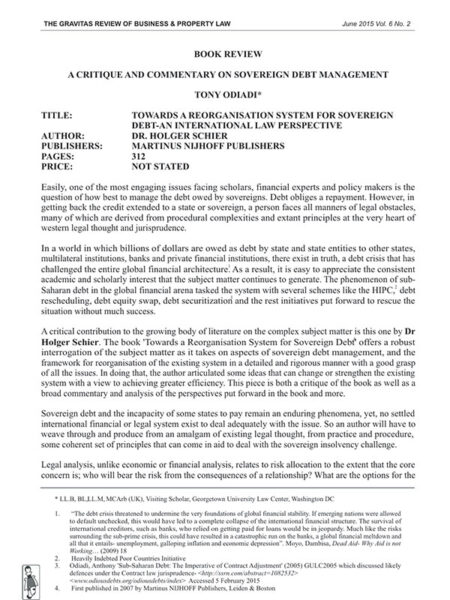
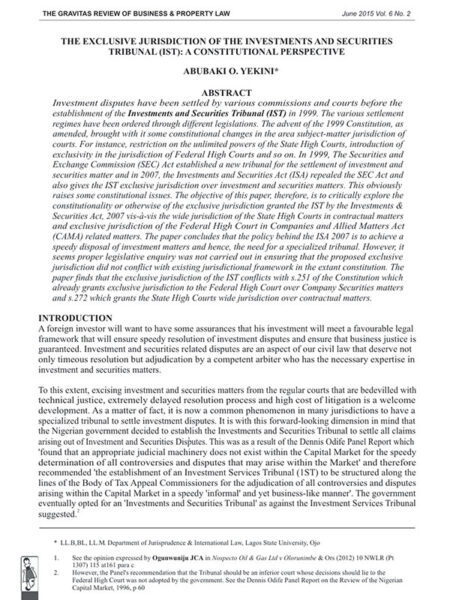
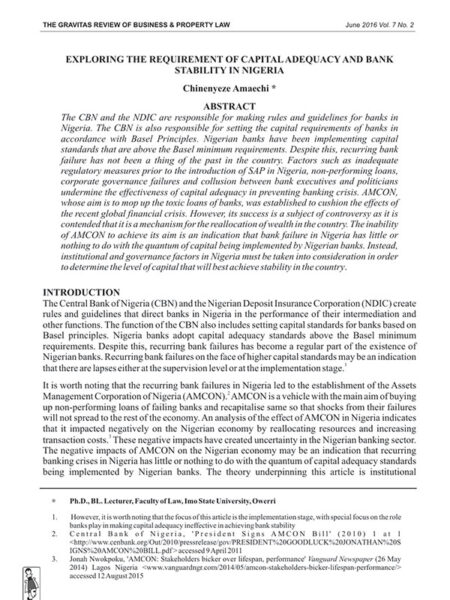


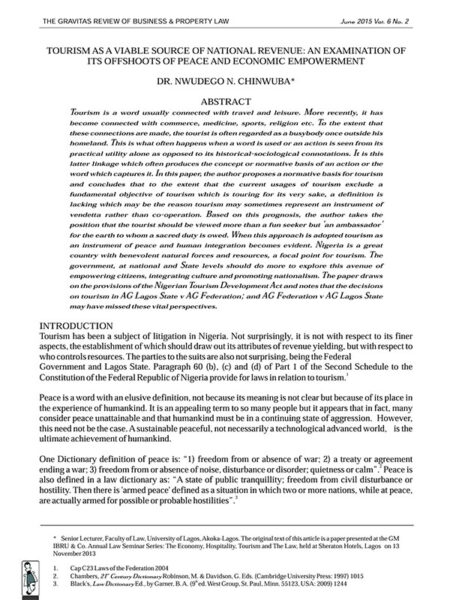
Reviews
There are no reviews yet.